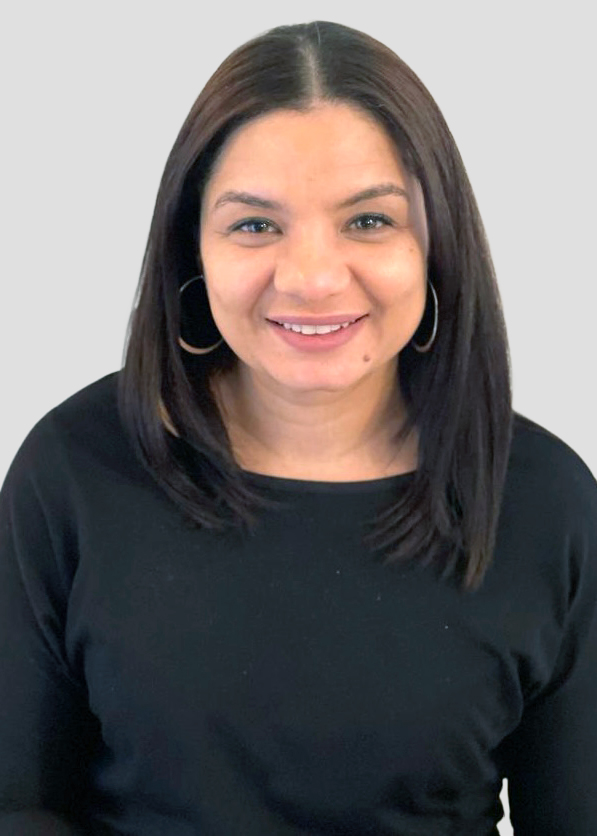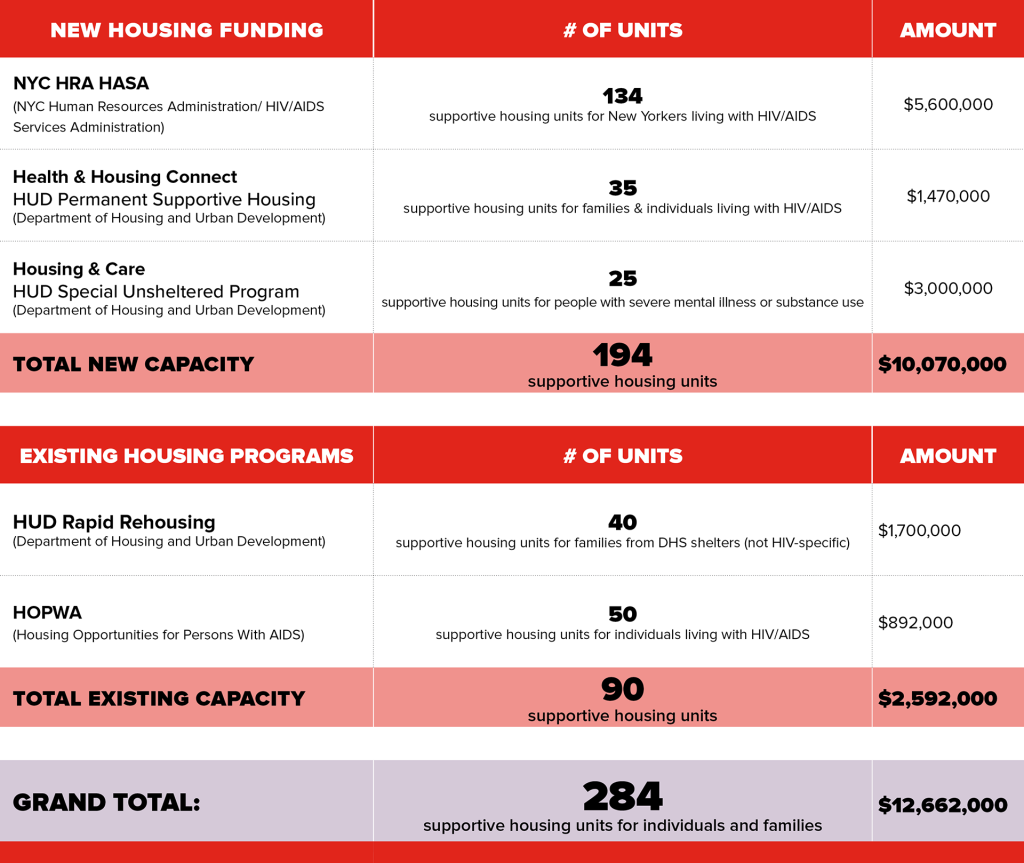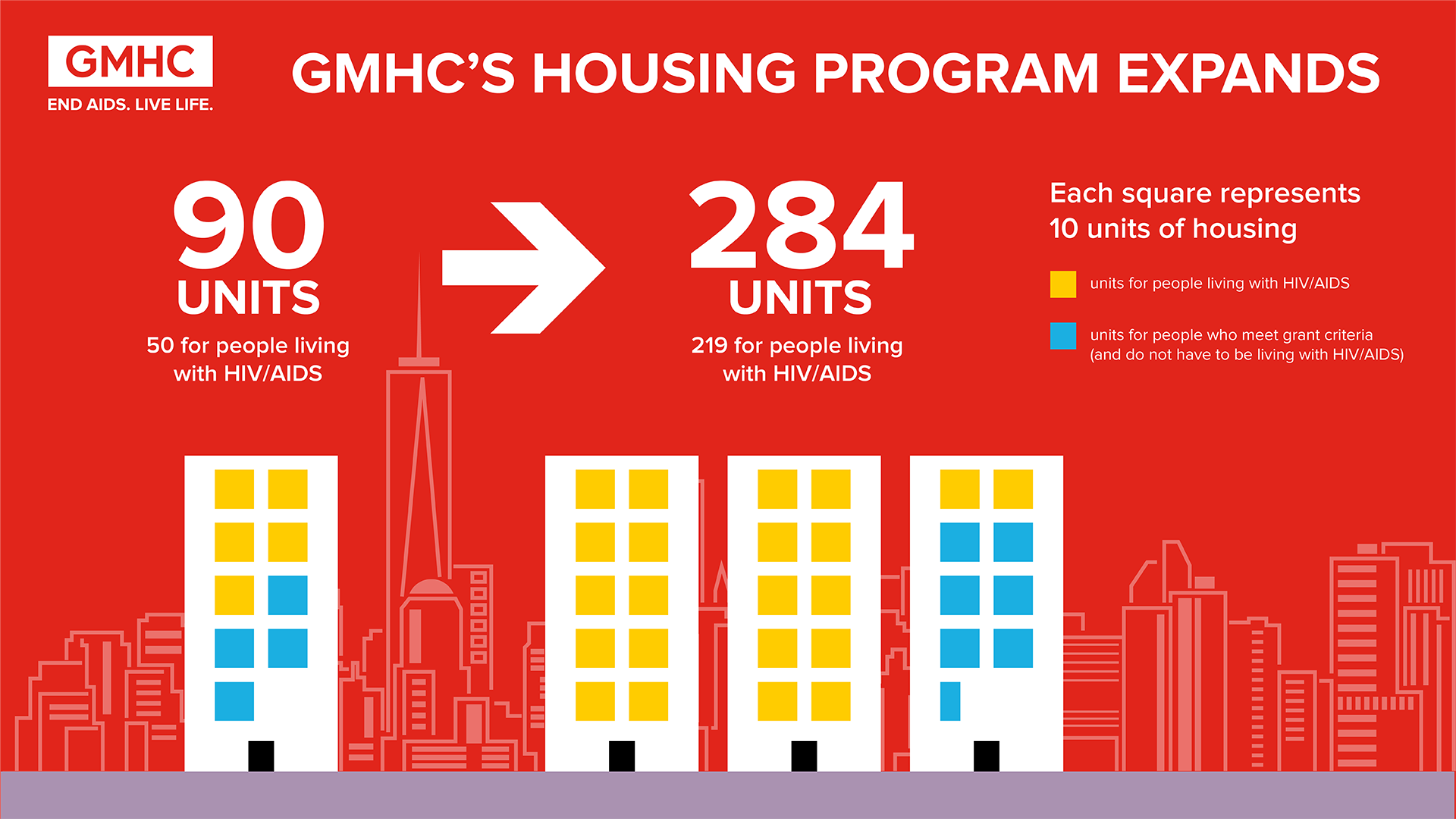“Housing is the top need reported by incoming clients and a pressing need for our long-term survivors.”
Kishani C. Moreno
As New York City experiences a seemingly insurmountable homelessness crisis, GMHC has received several new transformative grants, tripling the agency’s supportive housing capabilities for homeless families, individuals living with HIV and AIDS, and those with severe mental illness and substance use.
Kishani C. Moreno, GMHC’s Interim Chief Executive Officer/Chief Operating Officer notes, “These new city and federal grants will expand the number of supportive housing units that GMHC operates from 90 to 284. The funding includes an additional 194 permanent supportive housing units–169 units will serve people living with HIV/AIDS, and 25 additional units are designated for people with severe mental illness and substance use.”
“These new housing opportunities are critical to GMHC’s mission. By providing someone with stable housing, we will make a life-saving difference in our clients’ lives,” said Jacquelin Diaz, the agency’s Vice President of Operations. Diaz stated, “Helping new clients to procure permanent housing is the first step in their journey to independent living.”

Housing First
“Providing stable housing is the first step to a path of wellness for people who have a history of homelessness.” Diaz said. “Public perception views a success story as people obtaining a place to live and their problems are solved–but that is where the work begins. Having a home is the key to setting and achieving goals.”
GMHC takes a Housing First approach, where secure housing is the first step to fostering health, well-being, and the ability to live independently. Moreno states, “GMHC embraces the ‘housing is healthcare’ model. When a client has a place to call home, they are intrinsically motivated to maintain a connection with their primary care physician, attend appointments, and achieve positive health outcomes.”
Diaz explained, “GMHC’s experienced housing staff collaborate with each client as a team, forming a supportive circle. Everyone on the team has a role to empower clients to customized supportive services to meet their individual goals.”
New Housing Grants
The new permanent supportive housing grants will increase agency revenue by over $10 million a year. Here are how the grants will be allocated and who is eligible:
New York City Human Resources Administration-HIV/AIDS Service Administration (NYC HRA/HASA) Scatter-Site Housing program: Funds 134 permanent supportive housing units in Brooklyn and Queens for homeless New Yorkers living with HIV and AIDS, as well as severe mental illness and/or substance use. The grant is for $5.6 million a year over five years, totaling $27.8 million.
Housing and Urban Development (HUD) Permanent Supportive Housing program: Will fund 35 supportive housing units through GMHC’s new Health & Housing Connect program for homeless families and individuals living with HIV and AIDS. It totals $1.47 million per year.
Housing and Urban Development (HUD) Special Unsheltered program: Will fund 25 supportive housing units through GMHC’s new Connection to Housing & Care program for people with severe mental illness or substance use issues. It totals $3 million per year.
SURE/Ryan White Grant: GMHC also received $250,000 in annual funding through a SURE/Ryan White grant to provide additional gender-affirming care and case management services to 75 LGBTQ+ clients living with HIV and AIDS. The program prioritizes people who identify as transgender.
GMHC Existing Housing Portfolio: GMHC currently operates 50 permanent supportive housing units for people living with HIV and AIDS through a $967,000 annual NYC Department of Health and Mental Hygiene Housing Opportunities for Persons With AIDS (HOPWA) grant and 40 independent living units for families and individuals from NYC Department of Homeless Services shelters through a $1.7 million annual HUD Rapid Rehousing program grant, which has just been renewed.

Supportive Circle Model
GMHC’s experience with supportive housing starts with the Executive Office. With decades of experience Moreno and Chief Financial Officer, Michael Hester, started their non-profit careers developing supportive housing programs. Today, their mission is dedicated to implementing strategic initiatives that will continue the expansion of GMHC’s housing portfolio
“Housing is the top need reported by incoming clients and a pressing need for our long-term survivors” stated Moreno. Moreno and Hester believe a focus on client-centered care is paramount to operating a successful housing program. Furthermore, establishing programmatic efficiencies and utilizing data driven program support ensures a positive client outcome for years to come.
Led by Diaz, the housing team includes Housing Director Daisy Guzman, Residence Management Director, Anthony Fuoco, and Housing Coordinator Latonya Dixon along with a team of Case Managers. Housing staff have been working in the field for over 15 years and are familiar with the needs of unhoused clients and how to procure affordable, safe, and decent apartments in New York City.
“Building strong relationships with New York City service providers is extremely important. It is essential in providing the best possible services to our clients” commented Diaz. GMHC will leverage its existing relationships with landlords to locate suitable apartments for clients enrolled in the new HUD programs. For the HASA program, the agency will assume operations for 134 existing housing units in Brooklyn and Queens.
Diaz stated “GMHC will provide supportive services, that include medical and medication adherence, independent living skills, supportive counseling, rental assistance, behavior health services and many more programs that will establish stable housing services for our community.”

